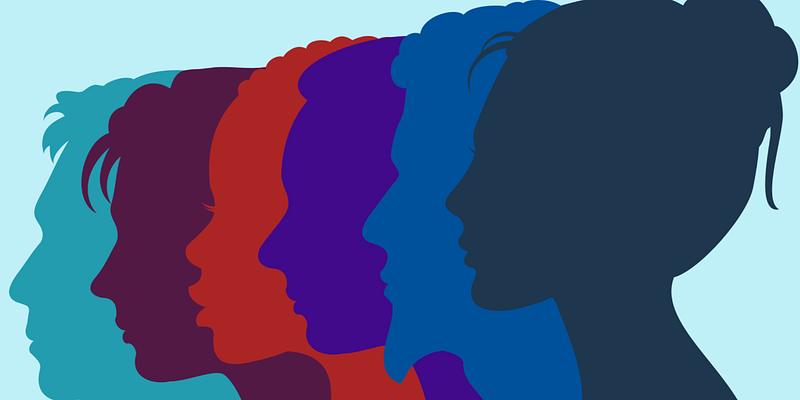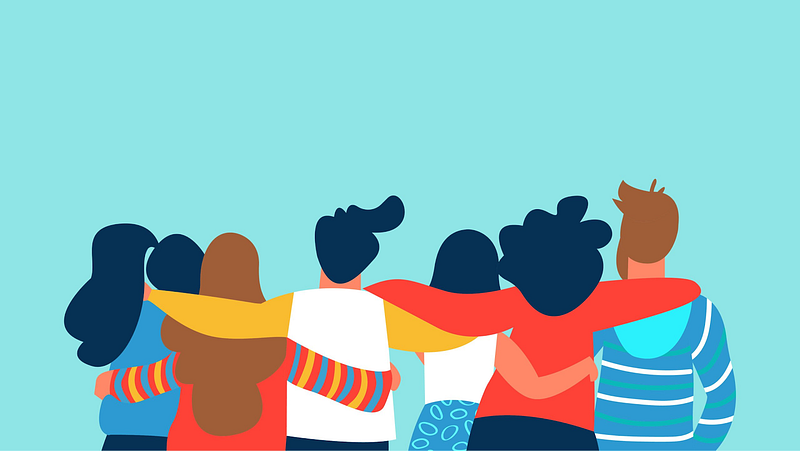Gender Equality: Are We Achieving It?
Disclaimer: This article is written based on the opinion of the author and does not in any way reflect the view of the organisation.

Disclaimer: This article is written based on the opinion of the author and does not in any way reflect the view of the organisation.
Opening thoughts
During one of many conversations I had with an acquaintance, we had discussed the formation of UN Women and the basis of how this organisation was formed. “Since there is an organisation representing women in the UN, should we not have organisations that represent all other genders to be formed?”. This line spoken struck rather deeply within me as I found myself contemplating that very question even after the conversation was over.
Over the past decades, gender empowerment has become a notable topic as many took to social media in order to raise its awareness. However, what came to my realisation was that whenever I searched on the topic of gender equality, what came back would mostly be information about equality among men and women. This posed a lingering question to me: what is gender equality and who exactly are we hoping for to achieve equality?
What does gender mean and how many genders are there?
Perhaps the word gender at one point may refer to being labelled as a man or a woman but gender identities these days no longer restrict as such. As defined by the World Health Organization, gender identity “refers to a person’s deeply felt, internal and individual experience of gender, which may or may not correspond to the person’s physiology or designated sex at birth”. Contrary to sex, gender is how one would choose to identify themselves.
So if we were to talk about gender equality, this does not necessarily just restrict to both the men and women. Rather, whenever we talk about gender equality, we are essentially advocating for anyone of the human race to receive the same treatment and opportunities no matter how they choose to identify themselves as.

What does gender equality mean?
According to the United Nations Entity for Gender Equality and the Empowerment of Women, gender equality “refers to the equal rights, responsibilities and opportunities of women and men and girls and boys”.
In essence, it refers to both genders being provided the same amount of opportunities and being able to receive the help required regardless of whether they are born female or male. This is contrary to the opinion that both genders are “the same”. Both genders may have different constitutions but gender equality serves to note that despite these differences, there should not be a difference in the way they are treated.
But what if a person does not identify as any of the above? Does that mean one would not be entitled to these rights? Personally, I believe that equality isn’t specifically limited to those who identify themselves as a man or a woman but rather to all, no matter how they choose to identify themselves as.
Why is gender equality important?
Gender equality is important at an individual level as it ensures equality between all gender in terms of rights, opportunities and obligations. This can include being able to receive the same treatment given to anyone else, having the opportunity for education and work, and being free from intimidation and gender-based violence.
On a community scale, it would help to promote better understanding among genders and how we can respect each other no matter how we choose to identify ourselves as. With better understanding, acceptance would come over time, and this would thus allow for us to live in a safer environment free from gender-based violence.
Economically, the reinforcement of gender equality can help to promote growth as more talents would emerge to take up posts within different sectors and industry within the country. If discrimination at work were to occur, this would mean we might lose out on talented individuals who could bring about innovation and new ideas towards the industry.
So, how can we promote gender equality?
1. Understand how we feel about gender equality!
As with many things, if one isn’t able to comprehensively agree with a certain topic, it is rather hard for us to take the next step. Being able to understand what gender equality is and why it is important is detrimental for us to understand how we can play a role towards promoting it. If originally you do not agree with the idea of gender equality, the first thing would be to ask why so? Are there specific reasons as to why gender equality, in your opinion, shouldn’t be achieved? When we think about these questions, it helps guide us towards understanding how we feel towards the issue.
2. Research the facts and figures!
Are our thoughts about gender equality actually reflected on our current society? Or is it something we are afraid would happen, but has not happened yet? Is what we currently know about gender equality the truth or are we misguided in any way? Having proper research done would be able to help us to identify what we know about the topic, understand whether our fears are unjust and may allow us to view things in a different light, especially in discussions, if we have done prior research, it is much more convincing when we speak to others as we are not speaking without facts to back us up.
3. Practice gender equality yourself!
What that means would be for us to give everyone a chance to showcase their capabilities rather than pre-determine what they can do based on what their gender may be. By withstraining from thoughts like, “You won’t be able to do it, because you are of a certain gender”, we would be able to have a better gauge of others without any prejudice.
4. Start encouraging others to do the same!
This can range from sharing out posts, hosting talks or even something as simple as a discussion with friends. Awareness is something that we can never stop promoting, so the more we are able to openly discuss the topic, the more likely it would be for it to be accepted as a norm.
5. Do not fear other genders as an opportunity taker!
At times, gender inequality stems from the fear of losing out on certain benefits once the other genders are provided with the same opportunities. Instead, we should welcome this development as it would mean for more creativity, insight and perspectives of how things could be done. By opening the doors to others, you are essentially given a chance to learn from them, grow and simply gain better experiences as a whole.
Closing thoughts
Going back to the question first posed in this article, I believe that the formation of an organisation would boil down to how imperative our society finds the problem to be. Without strong public sentiment and realistic aims, it would be highly unlikely for any organisations to be formed supporting the cause.
However, I believe that we can all still play an important role in ensuring widespread gender equality. No matter how we choose to identify ourselves, gender equality is something we are all entitled to have. Gender equality and gender empowerment should be something for all to uphold as the benefits reaped does not lie on a single side. By ensuring gender equality, we would encourage people of all genders to participate actively within their sectors, and promote talents to contribute back as the workforce of the community. Let’s not be encapsulated by the narrow definitions of what we think a specific gender should do, but rather focus on how we can collaboratively improve and advance as the human race.
[Written by: Evelyn Chen]


